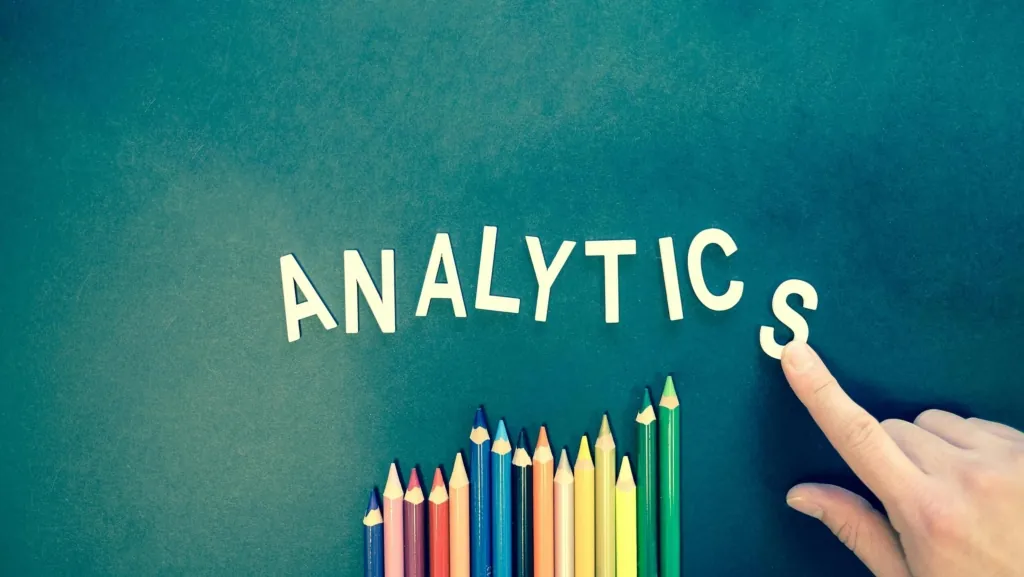في العصر الرقمي الذي نعيشه اليوم، أصبح وجود استراتيجية تسويق رقمي قوية للفندق أكثر أهمية من أي وقت مضى. مع تزايد لجوء المسافرين إلى الإنترنت للتخطيط لرحلاتهم، فإن التأكد من أن وجود فندقك على الإنترنت قوي يمكن أن يحدث فرقاً كبيراً. من تحسين محركات البحث ووسائل التواصل الاجتماعي إلى التسويق عبر البريد الإلكتروني والإعلانات المدفوعة، هناك العديد من الطرق لجذب المزيد من الزيارات إلى موقعك الإلكتروني وتحويلها إلى حجوزات. في هذه المقالة، سنستكشف العناصر الأساسية لاستراتيجية التسويق الرقمي الناجحة للفنادق وكيف يمكنك الاستفادة من هذه الأدوات لزيادة ظهور منشأتك وإيراداتها. دعنا نبدأ!

ما هو التسويق الرقمي الفندقي بالضبط؟
يشير التسويق الرقمي للفنادق إلى استخدام الأدوات والاستراتيجيات عبر الإنترنت للترويج للفندق وجذب النزلاء المحتملين. بعبارات بسيطة، يتعلق الأمر بجذب الانتباه إلى فندقك على الإنترنت وتحويل هذا الاهتمام إلى حجوزات. يتضمن ذلك مجموعة متنوعة من الأساليب مثل تحسين محركات البحث (SEO)، والتسويق عبر وسائل التواصل الاجتماعي، وحملات البريد الإلكتروني، والإعلانات المدفوعة، وتسويق المحتوى. الهدف من التسويق الرقمي للفنادق هو زيادة ظهور فندقك على الإنترنت، والتواصل مع النزلاء المحتملين في الوقت المناسب، وفي النهاية زيادة الحجوزات المباشرة، مما يساعد على زيادة إيراداتك.
يجب أن تتمتع الفنادق اليوم بحضور رقمي قوي لتظل قادرة على المنافسة في السوق. يبدأ العديد من المسافرين بحثهم عن أماكن الإقامة على محركات البحث، ووسائل التواصل الاجتماعي، ومواقع السفر، لذلك من المهم أن يظهر فندقك في المكان الذي يبحثون عنه. من خلال الاستفادة من استراتيجيات التسويق الرقمي الصحيحة، لا يمكن للفنادق جذب النزلاء فحسب، بل يمكنها أيضاً بناء ولاء للعلامة التجارية، والتفاعل مع النزلاء السابقين، والتميز عن المنافسين.

التسويق الرقمي للفنادق مع Nuoptima
في نوبتيمانحن نبرز كأفضل وكالة لمالكي الفنادق الذين يتطلعون إلى تنمية حضورهم الرقمي وزيادة عدد الزيارات العضوية. نحن متخصصون في خدمات تحسين محركات البحث المتكاملة، والتي تُعد ضرورية لضمان حصول فندقك على ترتيب جيد على محركات البحث مثل جوجل. من خلال تحسين موقع فندقك الإلكتروني من خلال تحسين محركات البحث على الصفحة ومحتوى عالي الجودة واستراتيجيات قوية لبناء الروابط، نساعدك على زيادة ظهورك وجذب المزيد من الحجوزات المباشرة.
ما يميزنا عن غيرنا هو التزامنا بالاستراتيجيات المصممة خصيصاً والفعالة من حيث التكلفة والتي تحقق نتائج كبيرة. نحن نركز على جذب الطلب وتوليد المبيعات العضوية، وهو أمر بالغ الأهمية بشكل خاص للفنادق التي ترغب في تجنب رسوم العمولة المرتفعة من منصات الحجز التابعة لجهات خارجية. لا يقتصر نهجنا على جذب الزائرين فقط؛ بل يتعلق بجذب النوع الصحيح من الزائرين - الضيوف الذين يبحثون بنشاط عن أماكن إقامة في منطقتك.
من خلال خبرتنا الواسعة في العمل في مجموعة متنوعة من المجالات، بما في ذلك التجارة الإلكترونية والخدمات كخدمة والرعاية الصحية، نضمن أن تكون استراتيجياتنا قابلة للتكيف والتوسع للشركات من جميع الأنواع. بالنسبة للفنادق، نقدم خطة تسويق رقمية شاملة تتضمن تحسين محركات البحث وإعلانات جوجل وإعلانات فيسبوك وإنشاء المحتوى - مما يتيح لمنشأتك التواصل مع النزلاء المحتملين في نقاط اتصال متعددة في عملية اتخاذ القرار.
إن سجلنا الحافل يتحدث عن نفسه: لقد ساعدنا الشركات على تحقيق نتائج مبهرة، بما في ذلك عائد استثمار يبلغ 3 أضعاف وزيادة عدد الزيارات العضوية للعلامات التجارية الإلكترونية بمقدار 165%. لقد ساعدنا أيضًا شركات مثل GlycanAge على زيادة عدد زياراتها بأكثر من 1300% باستخدام استراتيجيات تعتمد على تحسين محركات البحث. سواء كنت تدير فندقاً صغيراً أو منتجعاً كبيراً، فإن نهجنا المستهدف يمكن أن يعزز وجودك على الإنترنت ويحول المزيد من الزوار إلى ضيوف مخلصين.
ما أهمية استراتيجية التسويق الرقمي للفنادق؟
متينة استراتيجية تسويق الفنادق البوتيك هو مفتاح الازدهار في صناعة تنافسية. فهو يساعدك على التميز، وجذب الضيوف المناسبين، وفي النهاية زيادة الإيرادات. إليك بعض الأسباب التي تجعلها مهمة للغاية:
- زيادة الحجوزات والإيرادات. من خلال تنفيذ استراتيجية تسويق فعّالة، يمكنك التأثير بشكل مباشر على معدلات الحجز لديك. سواء كان ذلك من خلال الإعلانات المستهدفة، أو حملات البريد الإلكتروني، أو العروض الخاصة، تساعدك الاستراتيجية المنفذة بشكل جيد على ملء المزيد من الغرف، مما يعزز إيرادات فندقك.
- يعزز الوعي بالعلامة التجارية. في سوق مزدحم، من الضروري أن يبرز فندقك في هذه السوق المزدحمة. تعمل استراتيجية التسويق القوية على تعزيز شهرة علامتك التجارية، مما يضمن أن يتعرف النزلاء المحتملون على فندقك عند اتخاذ قرارات الحجز. قد يكون ذلك من خلال وسائل التواصل الاجتماعي، أو تحسين محركات البحث، أو الشراكات الاستراتيجية التي تُبقي علامتك التجارية في صدارة اهتماماتك.
- يحسّن ولاء العملاء. يمكن لاستراتيجية التسويق التي تشمل تجارب النزلاء الشخصية وبرامج الولاء أن تحسّن بشكل كبير من الاحتفاظ بالعملاء. فمن خلال تعزيز العلاقات مع النزلاء السابقين، يمكنك تشجيعهم على العودة بل والتوصية بالآخرين بفندقك.
- تتكيف مع تغيرات السوق. يتطور قطاع الضيافة باستمرار. تسمح لك استراتيجية التسويق المرنة بالتكيف مع الاتجاهات الجديدة، وتفضيلات العملاء، وحتى الأحداث غير المتوقعة (مثل الجائحة العالمية). تضمن لك القدرة على التكيُّف بقاء فندقك قادراً على المنافسة.
- تحسين الإنفاق التسويقي. تساعدك الاستراتيجية المصممة جيدًا على تحديد أولويات ميزانيتك التسويقية وتخصيصها بفعالية. يمكنك التركيز على القنوات التي تقدم أعلى عائد على الاستثمار، سواء كانت الحجوزات المباشرة أو إعلانات البحث المدفوعة أو التسويق المؤثر، مما يضمن في النهاية أن يكون إنفاقك مثمرًا وفعالاً.
إن استراتيجية التسويق الفندقي المتينة هي أساس النجاح على المدى الطويل، مما يساعدك على الحفاظ على قدرتك التنافسية وبناء قاعدة عملاء أوفياء وزيادة الإيرادات.

كيفية إنشاء استراتيجية تسويق رقمي لفندقك
يُعد وضع خطة تسويق رقمي لفندقك أمراً بالغ الأهمية لتأسيس حضور قوي على الإنترنت، وزيادة الحجوزات عبر الإنترنت، وزيادة الإيرادات في نهاية المطاف. مع ازدياد التنافسية في مجال الضيافة وازدياد اعتماده على التكنولوجيا الرقمية، فإن خطة التسويق الرقمي المدروسة جيداً ستميزك عن منافسيك وتساعدك على الوصول إلى جمهورك المستهدف بشكل أكثر فعالية. فيما يلي دليل شامل لإنشاء خطة تسويق رقمي لفندقك، مقسمة إلى خطوات رئيسية.
1. وضع أهداف وغايات واضحة
الخطوة الأولى في وضع خطة التسويق الرقمي هي تحديد ما تريد تحقيقه. إن تحديد أهداف واضحة وقابلة للقياس سيوجه جهودك ويمنحك معيارًا لتتبع تقدمك. قد تتضمن بعض الأهداف الشائعة للفنادق ما يلي:
- زيادة الحجوزات المباشرة: يمكن أن يؤدي تقليل الاعتماد على منصات الحجز التابعة لجهات خارجية مثل وكالات السفر عبر الإنترنت (وكلاء السفر عبر الإنترنت) إلى تحسين الربحية من خلال إلغاء رسوم العمولة.
- تعزيز الظهور على الإنترنت: يمكن أن تساعد زيادة عدد زيارات موقعك على الويب وتحسين تصنيفات محرك البحث في جذب المزيد من الضيوف المحتملين.
- تعزيز الوعي بالعلامة التجارية: تأسيس فندقك كعلامة تجارية معروفة وموثوق بها من خلال القنوات الرقمية مثل وسائل التواصل الاجتماعي والتسويق بالمحتوى.
- تحسين مشاركة الضيف: يمكن أن يساعد بناء علاقات طويلة الأمد مع النزلاء السابقين من خلال التسويق عبر البريد الإلكتروني ووسائل التواصل الاجتماعي في زيادة تكرار الأعمال.
- زيادة الإيرادات لكل نزيل: من خلال البيع الإضافي والعروض المخصصة وبرامج الولاء، يمكنك تحقيق المزيد من الإيرادات من كل حجز.
ستضمن لك الأهداف المحددة بوضوح أن تظل جهودك التسويقية مركّزة، وستساعدك على تقييم نجاح استراتيجيتك بمرور الوقت.
2. فهم جمهورك المستهدف
الخطوة التالية هي تحديد جمهورك المستهدف وفهمه. سيساعدك ذلك على صياغة رسائل مخصصة واختيار قنوات التسويق المناسبة للوصول إليهم. على سبيل المثال، قد يعطي المسافرون من رجال الأعمال الأولوية للراحة ووسائل الراحة الملائمة للعمل، بينما قد يبحث المسافرون بغرض الترفيه عن باقات العطلات أو وسائل الراحة التي تركز على الاسترخاء. يجب عليك مراعاة عوامل مثل:
- التركيبة السكانية: يمكن أن يؤثر كل من العمر والجنس والدخل والموقع على نوع النزلاء الذين يجذبهم فندقك.
- تفضيلات السفر: هل يبحثون عن تجربة فاخرة، أم عن أماكن إقامة مناسبة للميزانية، أم عن شيء بينهما؟
- السلوك: إن فهم كيفية بحث جمهورك المستهدف عن الفنادق (على الأجهزة المحمولة وأجهزة الكمبيوتر المكتبي و OTAs) وعادات الحجز الخاصة بهم سيوجه استراتيجيتك الرقمية.
- نقاط الألم: ما هي التحديات التي تواجههم عند الحجز في الفنادق، وكيف يمكن للتسويق الخاص بك أن يعالجها؟
يمكن أن يساعدك إنشاء شخصيات الضيوف (ملفات شخصية خيالية لضيوفك المثاليين) في تصور هذه السمات، مما يسهل عليك تخصيص جهودك التسويقية.
3. إجراء تحليل المنافسين
لوضع خطة تسويق رقمية فعالة، من الضروري فهم ما يفعله منافسوك. يسمح لك تحليل المنافسين بتحديد الثغرات في استراتيجياتهم والفرص المتاحة لفندقك للتميز. إليك ما يجب البحث عنه:
- التواجد عبر الإنترنت: قم بتحليل المواقع الإلكترونية لمنافسيك وملفاتهم الشخصية على وسائل التواصل الاجتماعي والمحتوى الخاص بهم لمعرفة كيفية تقديم علامتهم التجارية والتفاعل مع الضيوف.
- تحسين محركات البحث: استخدم أدوات مثل Google Keyword Planner أو SEMrush لتحديد الكلمات الرئيسية التي يقوم منافسوك بترتيبها. يمكن أن يساعدك ذلك في اكتشاف فرص تحسين محركات البحث القيّمة.
- الحملات الإعلانية: راجع إعلانات منافسيك في إعلانات جوجل وإعلانات وسائل التواصل الاجتماعي لمعرفة كيفية وضعهم لعروضهم ونوع الرسائل التي تلقى صدى لدى جمهورهم المستهدف.
- المراجعات والسمعة: تفحّص كيفية إدارة منافسيك لسمعتهم على الإنترنت، ونوع المراجعات التي يتلقونها، وكيفية استجابتهم لتعليقات النزلاء.
سيمنحك هذا التحليل رؤى حول المجالات التي يمكنك التمييز فيها بين فندقك، بالإضافة إلى تكتيكات لتحسين استراتيجية التسويق الرقمي الخاصة بك.
4. تطوير قنوات التسويق الرقمي لفندقك
والآن بعد أن أصبحت لديك أهداف واضحة، وفهم لجمهورك، وفهم لجمهورك، ورؤى حول المنافسين، حان الوقت لاختيار وتطوير قنوات التسويق الرقمي لفندقك. تخدم كل قناة غرضاً محدداً وتساعدك في الوصول إلى جمهورك في مراحل مختلفة من رحلة الحجز. تتضمن بعض القنوات الرئيسية التي يجب مراعاتها ما يلي:
الموقع الإلكتروني للفندق ومحرك الحجز
الموقع الإلكتروني لفندقك هو المحور الرئيسي لجهودك التسويقية الرقمية. يجب أن يقدم تجربة مستخدم سلسة، ويعرض وسائل الراحة في فندقك، ويسهل على النزلاء المحتملين الحجز مباشرةً. إليك كيفية تحسين موقعك الإلكتروني:
- تحسين مُحسّنات محرّكات البحث SEO: استخدم الكلمات المفتاحية ذات الصلة في محتوى موقعك الإلكتروني والعلامات الوصفية والنص البديل للصور لتحسين تصنيفات محرك البحث الخاص بك.
- تحسين الأجهزة المحمولة: تأكد من أن موقعك الإلكتروني متوافق مع الهواتف المحمولة، حيث يتصفح العديد من المسافرين الآن ويحجزون الفنادق عبر الهواتف الذكية.
- دعوات واضحة لاتخاذ إجراء: تضمين أزرار الحجز التي يسهل العثور عليها، والعروض الخاصة، ومعلومات الاتصال لتوجيه الزوار نحو الحجز.
- المحتوى: قم بإنشاء محتوى جذاب، مثل منشورات المدونة حول مناطق الجذب المحلية أو مقاطع الفيديو من وراء الكواليس أو شهادات الضيوف لإثارة الثقة والاهتمام.
- سرعة التحميل السريع: يمكن أن يؤدي بطء تحميل الموقع الإلكتروني إلى ارتفاع معدلات الارتداد. تأكد من تحميل موقعك الإلكتروني بسرعة للحفاظ على تفاعل الزوار.
التسويق عبر محركات البحث (PPC)
تُعد إعلانات الدفع لكل نقرة (PPC) طريقة فعّالة للغاية لجذب الزيارات المستهدفة إلى موقعك الإلكتروني الخاص بالفندق. باستخدام إعلانات جوجل وإعلانات فيسبوك وإعلانات إنستجرام، يمكنك تشغيل حملات مستهدفة تصل إلى المستخدمين بناءً على موقعهم واهتماماتهم ونوايا البحث. تتضمن بعض الاستراتيجيات الرئيسية ما يلي:
- إعلانات جوجل: استخدم شبكة بحث Google لاستهداف الأشخاص الذين يبحثون بنشاط عن أماكن إقامة في منطقتك. ركز على الكلمات المفتاحية المستندة إلى الموقع الجغرافي مثل "فنادق فاخرة في [المدينة]" أو "أماكن إقامة بأسعار معقولة بالقرب من [معلم]".
- إعادة التسويق: تنفيذ حملات تجديد النشاط التسويقي لإعادة إشراك الزائرين الذين سبق لهم زيارة موقعك الإلكتروني ولم يحجزوا، وتشجيعهم على العودة وإكمال الحجز.
- إعلانات وسائل التواصل الاجتماعي: قم بتشغيل الإعلانات على منصات مثل فيسبوك وإنستجرام لعرض وسائل الراحة والعروض الخاصة والتجارب المحلية في فندقك على الجماهير المستهدفة.
التسويق عبر وسائل التواصل الاجتماعي
تُعد وسائل التواصل الاجتماعي ضرورية للتفاعل مع النزلاء المحتملين، وبناء الوعي بالعلامة التجارية، وعرض الميزات الفريدة لفندقك. منصات مثل إنستغرام وفيسبوك وتيك توك هي منصات مرئية في المقام الأول، مما يجعلها مثالية للفنادق لتسليط الضوء على أجوائها ووسائل الراحة وتجربة النزلاء. إليك بعض التكتيكات:
- التفاعل مع المتابعين: انشر بانتظام وتفاعل مع متابعيك من خلال الرد على التعليقات والرسائل والإشارات.
- المحتوى الذي ينشئه المستخدم: شجّع الضيوف على مشاركة تجاربهم على وسائل التواصل الاجتماعي وعرض محتواهم على ملفاتك الشخصية لبناء المصداقية.
- العروض الترويجية والمسابقات: قم بإجراء هبات أو عروض ترويجية خاصة لزيادة المشاركة وجذب متابعين جدد.
- الإعلانات الاجتماعية المدفوعة: استخدم الإعلانات المدفوعة لاستهداف الضيوف المحتملين بناءً على التركيبة السكانية والاهتمامات والسلوكيات.
التسويق عبر البريد الإلكتروني
يُعد التسويق عبر البريد الإلكتروني أحد أكثر الطرق فعالية لرعاية العملاء المحتملين والحفاظ على العلاقات مع النزلاء السابقين. أنشئ قوائم بريد إلكتروني مجزأة لإرسال رسائل مخصصة بناءً على سلوك الضيف. تتضمن بعض الأفكار ما يلي:
- رسائل البريد الإلكتروني الترحيبية: إرسال بريد إلكتروني مخصص لشكر النزلاء على الحجز، مع معلومات مفيدة عن إقامتهم.
- رسائل البريد الإلكتروني للحجز المتروكة: إرسال رسائل تذكير تلقائية إلى المستخدمين الذين بدأوا الحجز ولكنهم لم يكملوا العملية، مع تقديم خصم أو حافز لهم لإكمال الحجز.
- رسائل البريد الإلكتروني بعد الإقامة: بعد أن يقوم النزلاء بتسجيل المغادرة، أرسل لهم رسالة شكر عبر البريد الإلكتروني وشجّعهم على ترك تعليق، أو اعرض عليهم خصومات الولاء لإقامتهم التالية.
المراجعات عبر الإنترنت وإدارة السمعة
المراجعات عبر الإنترنت مهمة جداً للتأثير على قرارات النزلاء المحتملين. يمكن أن تعزز المراجعات الإيجابية مصداقيتك، في حين أن المراجعات السلبية، إذا تم التعامل معها بشكل سيئ، يمكن أن تضر بسمعتك. نفِّذ استراتيجية لمراقبة المراجعات والرد عليها:
- تشجيع المراجعات التشجيعية: اطلب من النزلاء الراضين ترك تعليقاتهم على منصات مثل Google وTripAdvisor وOTAs.
- الرد على المراجعات: الرد الفوري على جميع التعليقات، الإيجابية منها والسلبية على حد سواء، مما يدل على تقديرك للملاحظات والتزامك بتحسين تجربة النزلاء.
- سمعة المسار: استخدم أدوات إدارة السمعة لتتبع وإدارة تواجدك على الإنترنت.
5. وضع الميزانية وتخصيص الموارد
تتطلب خطة التسويق الرقمي الناجحة الاستثمار في الوقت والمال على حد سواء. ضع ميزانية واقعية تتوافق مع أهدافك ومواردك. ضع في اعتبارك المبلغ الذي ترغب في إنفاقه على الإعلانات، وتحسين محركات البحث، وإنشاء المحتوى، وأدوات البرمجيات. خصص ميزانيتك بناءً على ما سيكون له أكبر تأثير على أهدافك، سواء كان ذلك زيادة عدد الزيارات من خلال الدفع بالنقرة أو إنشاء قائمة بريد إلكتروني قوية أو الاستثمار في إعلانات وسائل التواصل الاجتماعي.
6. الرصد والقياس والتحسين
أخيرًا، من الضروري تتبع فعالية جهودك التسويقية الرقمية. استخدم أدوات مثل Google Analytics، ورؤى وسائل التواصل الاجتماعي، وتقارير حملات البريد الإلكتروني لقياس نجاح حملاتك. ابحث عن مؤشرات الأداء الرئيسية (KPIs) مثل عدد زيارات الموقع الإلكتروني، ومعدلات التحويل، وعائد الاستثمار من الحملات المدفوعة. استخدم هذه البيانات لتحسين استراتيجيتك وتعديلها لتحسين الأداء باستمرار.
يتضمن وضع خطة تسويق رقمي لفندقك فهم جمهورك المستهدف، ووضع أهداف واضحة، واختيار قنوات التسويق المناسبة، وتحسين جهودك باستمرار. من خلال التركيز على تحسين محركات البحث، والإعلانات المدفوعة، ووسائل التواصل الاجتماعي، وإنشاء المحتوى، والتسويق عبر البريد الإلكتروني، يمكنك بناء استراتيجية شاملة تزيد من الظهور، وتحفز الحجوزات، وتساعدك على التميز في سوق تنافسية. مع وجود خطة مُحكَمة، سيكون فندقك في وضع جيد لجذب المزيد من النزلاء وتحقيق النجاح على المدى الطويل.
الأدوات الأساسية للتسويق الرقمي الناجح للفنادق
لتطوير استراتيجيات تسويق رقمية فعالة وناجحة، يحتاج المسوقون في الفنادق إلى مجموعة متنوعة من الأدوات التي تلبي الاحتياجات الفريدة لقطاع الضيافة على وجه التحديد. فيما يلي نظرة عامة مفصلة على الأدوات الرئيسية التي يجب على كل مسوق فندقي أخذها بعين الاعتبار:
- محرك الحجز: يعد محرك الحجز السلس والبديهي أمرًا حيويًا لتحويل زوار الموقع الإلكتروني إلى نزلاء يدفعون. فهو يتيح سهولة الحجز عبر الإنترنت من خلال السماح للنزلاء بعرض خيارات الغرف، والتحقق من توافر الغرف، والحجز مباشرةً من موقع الفندق الإلكتروني بأقل جهد ممكن.
- الموقع الإلكتروني: موقعك الإلكتروني هو أساس وجود فندقك على الإنترنت. يجب أن يكون جذاباً بصرياً، وسريع الاستجابة عبر جميع الأجهزة، ومُحسَّناً لمحركات البحث (SEO) لجذب حركة المرور العضوية. يجب أن يقدم الموقع الإلكتروني أيضاً معلومات أساسية عن الفندق ووسائل الراحة والمعالم السياحية المحلية وخيارات الحجز لتوفير تجربة سلسة للمستخدمين.
- روبوتات الدردشة الآلية للحجز: تعمل روبوتات الدردشة الآلية التي تعمل بالذكاء الاصطناعي على تحسين خدمة العملاء من خلال مساعدة الزوار في الوقت الفعلي. يمكن لهؤلاء المساعدين الآليين التعامل مع الأسئلة المتكررة، وتقديم توصيات مخصصة، والمساعدة في الحجوزات، كل ذلك مع تحسين تجربة الضيف.
- إدارة علاقات العملاء في الفنادق (CRM): يساعد نظام إدارة علاقات العملاء في الفندق على إدارة تفاعلات النزلاء وتفضيلاتهم وسجل الحجوزات. ومن خلال جمع البيانات وتحليلها، تُمكِّن هذه الأداة المسوقين من إنشاء حملات مخصصة، وتقديم عروض ترويجية مستهدفة، وتعزيز ولاء النزلاء، مما يشجع في النهاية على تكرار الزيارات وزيادة الحجوزات.
- برنامج إدارة السمعة: تُعد إدارة السمعة عبر الإنترنت أمرًا أساسيًا للتأثير على قرارات المسافرين. تسمح أدوات إدارة السمعة لمسوّقي الفنادق بمراقبة آراء النزلاء والرد عليها عبر منصات متعددة، مما يضمن الاستجابة السريعة للتعليقات والحفاظ على حضور إيجابي على الإنترنت يجذب المزيد من الحجوزات.
- منصات إدارة عروض الأسعار الفوقية: تُعد محركات البحث الفوقية مثل إعلانات الفنادق من Google وTripAdvisor وTrivago ضرورية لتوزيع الفنادق. تسمح منصات إدارة عروض الأسعار لمسوّقي الفنادق بتحسين وجودهم على هذه المنصات من خلال التحكم في عروض الأسعار والميزانيات وأداء الحملة لتعزيز الظهور وزيادة الحجوزات.
- برامج الولاء المستقلة: يساعد تنفيذ برنامج ولاء يحمل علامة تجارية على زيادة الحجوزات المباشرة، ومكافأة النزلاء المتكررين، وجمع بيانات النزلاء القيّمة للتسويق المخصص. يمكن لبرامج الولاء أن تقدم خصومات ومكافآت وامتيازات حصرية لتشجيع الاحتفاظ بالعملاء وتكرار الأعمال.
- أدوات الحجز المباشر: تُعد أدوات مثل أدوات مقارنة الأسعار، وأدوات التحقق من الأسعار، وبرامج مراقبة تكافؤ الأسعار مهمة لزيادة الحجوزات المباشرة. تضمن هذه الأدوات أن يظل فندقك منافساً في الأسعار، وتضمن أفضل الأسعار للنزلاء، وتوفر عملية حجز سلسة وسهلة الاستخدام.
من خلال استخدام هذه الأدوات بفعالية، يمكن للمسوِّقين في الفنادق تحسين استراتيجيات التسويق الرقمي الخاصة بهم، وتعزيز الحجوزات المباشرة، وتحسين رضا النزلاء، وفي النهاية زيادة الإيرادات والربحية.
الخاتمة
في قطاع الضيافة الذي يتسم بالتنافسية الشديدة اليوم، يُعد وجود استراتيجية تسويق رقمي قوية للفنادق أمراً ضرورياً لتحقيق النجاح. بدءاً من الاستفادة من تحسين محركات البحث إلى التفاعل مع النزلاء على وسائل التواصل الاجتماعي وزيادة الحجوزات المباشرة من خلال حملات البريد الإلكتروني، هناك الكثير من الأدوات المتاحة لك لتعزيز الظهور وزيادة الإيرادات. والمفتاح هو أن تكون متسقاً، وأن تظل قادراً على التكيف مع اتجاهات السوق، وأن تُحسِّن استراتيجيتك باستمرار لتلبية احتياجات جمهورك المستهدف. من خلال الجمع بين تقنيات التسويق الرقمي هذه، يمكنك إنشاء نهج شامل لا يساعدك على التميز فحسب، بل يساعدك أيضًا على بناء قاعدة عملاء مخلصين. لذا، ابدأ في تنفيذ هذه الاستراتيجيات اليوم وشاهد فندقك يزدهر!
الأسئلة الشائعة
استراتيجية التسويق الرقمي للفندق هي خطة تحدد كيفية استخدام الفندق للقنوات الإلكترونية، مثل تحسين محركات البحث، ووسائل التواصل الاجتماعي، والتسويق عبر البريد الإلكتروني، والإعلانات المدفوعة، لجذب النزلاء، وزيادة الحجوزات، وزيادة الوعي بالعلامة التجارية.
التسويق الرقمي مهم لأنه يساعد الفنادق على الوصول إلى النزلاء المحتملين حيث يقضون معظم وقتهم: عبر الإنترنت. كما أنه يسمح لك باستهداف جماهير محددة، وتتبع نتائجك، وزيادة الحجوزات المباشرة، مما يقلل من الاعتماد على منصات الطرف الثالث.
تشمل المكونات الرئيسية تحسين محركات البحث (SEO)، والتسويق عبر وسائل التواصل الاجتماعي، والتسويق عبر البريد الإلكتروني، والإعلانات المدفوعة (PPC)، والمراجعات عبر الإنترنت، وتسويق المحتوى. يعمل كل مكون معًا لزيادة عدد الزيارات وإشراك الضيوف المحتملين.
تسمح لك وسائل التواصل الاجتماعي بالتواصل مع النزلاء المحتملين، وعرض وسائل الراحة في فندقك، ومشاركة تجارب النزلاء، وتشغيل حملات إعلانية مستهدفة. كما أنها طريقة رائعة لبناء مجتمع وزيادة الوعي بالعلامة التجارية.
يساعد تحسين محركات البحث على تحسين ظهور فندقك في نتائج محرك البحث، مما يسهل على النزلاء المحتملين العثور عليك. من خلال تحسين موقعك الإلكتروني باستخدام الكلمات المفتاحية الصحيحة، وإنشاء محتوى قيّم، وضمان تصميم متوافق مع الجوّال، يمكنك جذب المزيد من الزيارات إلى موقعك الإلكتروني.
يمكنك قياس النجاح من خلال تتبُّع مؤشرات الأداء الرئيسية (KPIs) مثل عدد زيارات الموقع الإلكتروني، ومعدلات التحويل، ومشاركة وسائل التواصل الاجتماعي، ومعدلات فتح البريد الإلكتروني والنقر على النقر، وعدد الحجوزات المباشرة. يمكن أن يساعدك استخدام أدوات مثل Google Analytics ورؤى وسائل التواصل الاجتماعي في مراقبة جهودك وتعديل استراتيجيتك وفقًا لذلك.



